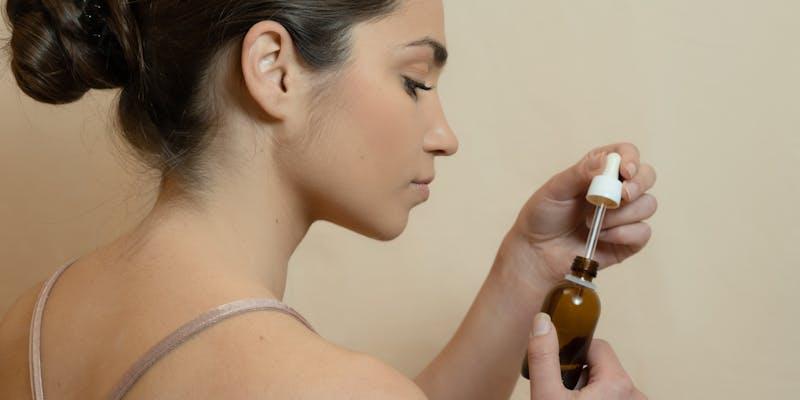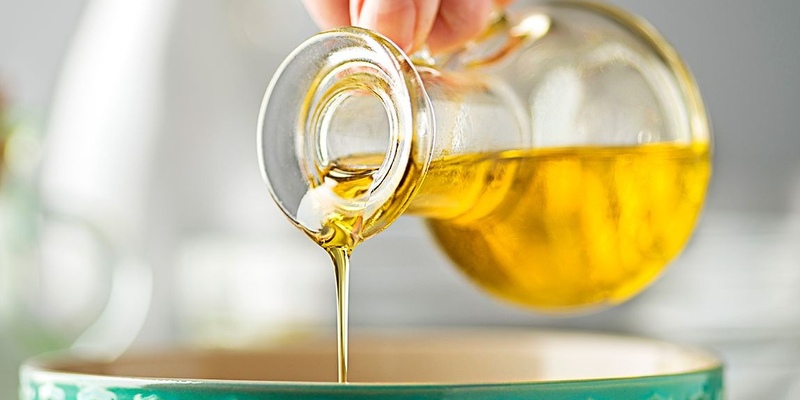Retinol Safety for Summertime Use - How Do Derms Use It
Mar 14, 2024 By Nancy Miller
As the summer sunsets, it's time to reconsider our skincare - including retinol. The warmer months bring extra sun exposure and possible unwanted side effects for many. Dermatologists prescribe retinol with care; many say to use retinol and sunscreen together. This article will discuss using retinol effectively during the summer months for healthy and glowing skin.
What is Retinol?
Retinol is an anti-aging vitamin A that improves skin texture, collagen synthesis, and cell turnover. It additionally sensitizes the skin, making it sun-sensitive, so use it with caution in summer. Essential skincare ingredient retinol aids aged skin. It reduces freckles and sun spots and replenishes skin after sun exposure.
Factors to Consider in Summer

During the summer months, we experience extended sunburn and photoaging. Retinol and UV radiation together could cause heightened skin sensitivity and potential sunburns. These factors must be understood to ensure safe retinol and sunscreen use in summertime. Remember that retinol could cause more sun and burn damage to the skin. So, retinol sunblock must be used.
Tips for Usage of Retinol in Summer
- Use at Night: Applying retinoids or retinol solution in your evening routine will help the skin replenish without sunlight exposure. The skin regeneration process normally occurs at night, and retinol will improve the process while you sleep.
- Apply Sunscreen: Retinol use in summertime requires sunscreen. Use broad-spectrum SPF 30 or higher on all exposed skin and liberally apply. Reapply every two hours outdoors.
- Start Slow: Start with a low retinol concentration and gradually increase intensity to avoid discomfort. Be careful with retinol, which is strong. Gradually increasing the concentration can help your skin adjust to the substances and prevent negative effects.
- Look for Alternatives: If retinol is too strong on your skin in summer, consider gentler choices like retinyl palmitate or bakuchiol. These ingredients provide very similar anti-aging benefits without sun sensitivity.
- Moisturize: Retinol dries, especially in summer. Use a lightweight moisturizer to keep your skin balanced and avoid irritation and dryness.
- Post-Retinol Skincare Routine: A mild cleanser must follow Retinol to remove remaining impurities and products. A moisturizing/calming skincare routine should be followed to restore the skin's moisture barrier and reduce inflammation. After retinol, use hyaluronic acid, ceramides, and antioxidants to nourish and protect the skin.
Selecting the Right Products
Pick light retinol products, like a retinol sunblock, for summer that are not heavy or oily on the skin. Look for non-comedogenic formulations that will not clog pores, and get a dermatologist for customized advice. Choose products created for the summer months because some might have additional ingredients to help you limit exposure to the sun.
Precautions and Possible Side Effects
Retinol has impressive results but isn't without danger. Possible side effects include increased redness, dryness, and sun sensitivity when used in summertime. Patch test retinol products and check your skin for unwanted side effects. If the irritation persists, quit using and visit a dermatologist. To avoid additional irritation and sensitivity, Retinol must also not be used with other exfoliating or irritating products.
Reactions With Other Ingredients
Using retinol for the first time in the summer skincare routine may lead to adverse reactions with other ingredients. You can find, for instance, benzoyl peroxide and AHAs among the substances that can be sensitive and irritating when used together with retinol. So, do not apply them all together or even at different times during the day, as undesirable reactions can occur. Retinol will give more products a boost, like antioxidants and peptides; thus, the skin will be healthy overall and have an anti-aging effect.
Though retinol and Vitamin C have powerful skin effects, they shouldn't be used together due to possible reactions that can dull their impact. When used in large amounts, retinol and vitamin C can easily destabilize one another and render both less potent. This might lead to reduced efficacy and irritation or sensitivity of the skin. Use retinol products in your nighttime routine and vitamin C products in the early morning before applying sunscreen.
Retinol Burn: Symptoms and Treatment

A retinol burn is a technical term for those skin redness and swelling conditions associated with applying retinol-containing cosmetics and retinol and tanning. Symptoms may include redness, peeling, itching, and skin irritation upon touching. If you notice these side effects, immediately cease retinol application, give your skin a chance to recover, and rebalance the oil production. Therapy for retinol burn entails typically gentle skincare to soothe and repair the skin. Here are a few methods to relieve the discomfort and heal:
- Stop Using Retinol: Stop using retinol products until your skin is healed. This will prevent additional irritation and enable the skin to heal naturally.
- Cleanse Gently: Clean your face using a gentle, nontoxic cleanser to remove retinol and other skincare products. It is necessary at this stage to keep the skin clear from such harsh exfoliants and scrubs as these only compound the irritation levels.
- Moisturize: Add a facial moisturizer to reduce skin dryness and give the natural skin moisture screen back. Include things with those ingredients: hyaluronic acid, colloidal oatmeal, or ceramides that soothe. Usually, we don't think about the strategies or techniques people use to interact successfully in our everyday lives.
- Use a Barrier Repair Cream: Consider using a barrier repair cream or lotion made of dimethicone or petrolatum as an immediate measure to guard and prevent the loss of skin moisture through the known barrier.
- Avoid Sun Exposure: One primary measure is to try to avoid the direct sun and ensure that you have a hat, sunshades, and suitable shoes when you need to be outside to avoid further damage to your skin. Use a broad-spectrum SPF 30 or even greater to stop UV rays.
- See a Dermatologist: If your symptoms persist and worsen, visit a dermatologist for therapy and assessment. They might prescribe topical corticosteroids or other drugs to lessen swelling and cure wounds.
Conclusion
Overall, retinol could be an excellent summer skincare choice. These measures and hints can help you add retinol to your summer skincare routine and reap its anti-aging benefits without hurting your skin. Always protect the skin and listen to the skin. For reactions or questions, see a dermatologist for details. With the correct technique, retinol provides young skin all year round.

Understanding Retinol: OTC vs Prescription Options

The Key to the Most Soothing Bath You've Ever Had Is Peppermint Tea!

Exploring Healthy Cold Water Fish Varieties for Your Diet

Energetic Insights: 8 Key Facts About Your Body's Vigor

Lip Exfoliation Techniques Revealed! The Correct Way To Get Plump Lips

Choosing the Right Cooking Oils for a Healthier You

Can Simple Exercises Improve Your Hip Rotation?


